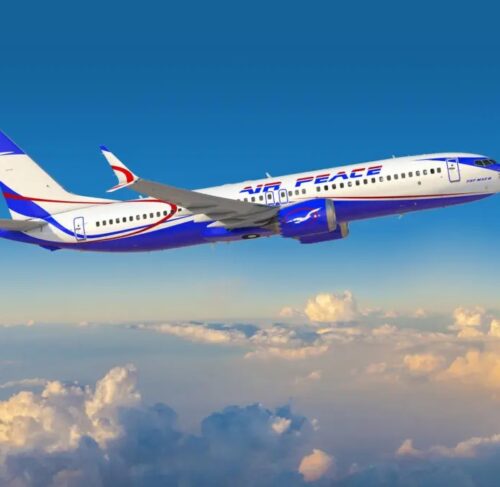
Air Peace, Nigeria’s leading airline, is continuing its ambitious expansion plans despite facing significant internal and external challenges. The airline recently made headlines by slashing its airfares on the Lagos-London route by 66%, offering economy class tickets at N1.2 million, in stark contrast to the average N3.5 million charged by foreign carriers.
The move is part of Air Peace’s strategy to secure a larger share of the lucrative Nigeria-UK passenger market. In a remarkable achievement, the airline successfully launched direct flights between Lagos and London, marking the return of indigenous carriers on this important route after a seven-year hiatus, with over 260 passengers aboard the inaugural flight.
Allen Onyema, CEO of Air Peace, shared in an interview that the airline is set to expand its operations further by introducing flights to New York and Houston by the end of 2024. To support these new routes, Air Peace is in the process of acquiring additional aircraft.
However, despite these milestones, Onyema revealed that the airline’s journey has been marred by numerous obstacles, including both internal and external resistance. He described the lengthy process of securing approval to operate the Lagos-London route as a “cat-and-mouse game,” taking over six years to obtain the necessary designation from the Nigerian government.
Onyema detailed the challenges, noting that the airline had procured three Boeing 777 aircraft specifically for the London route but faced delays due to what he termed “international aero-politics.” He explained that despite receiving the designation to operate in the UK, Air Peace was initially denied permission by the Nigerian Civil Aviation Authority (NCAA) to apply for the required Technical Country Operators (TCO) permit from European authorities.
“We faced delays and unnecessary setbacks in our own country. Even though we had federal government approval, the NCAA withheld its support for our application to operate in the UK,” Onyema stated.
The CEO emphasized the importance of government support for indigenous airlines, expressing frustration at the lack of assistance from Nigerian authorities. “We are pleading for support—by making it easier for local airlines to do business. With the right backing, we could thrive, rather than constantly facing setbacks,” he said.
Nigeria’s aviation sector has experienced rapid growth, with a notable increase in international passenger traffic. In 2021, over 2.2 million international passengers passed through Nigerian airports, a 57.61% growth from the previous year. The aviation industry contributes significantly to Nigeria’s economy, with estimates suggesting it supports $600 million of GDP, while spending by foreign tourists adds another $1.1 billion, totaling $1.7 billion in GDP support.
Despite these achievements, Onyema’s comments highlight the ongoing challenges faced by indigenous airlines in Nigeria, underscoring the need for more effective policy support to ensure their continued growth and success in the global aviation market.


